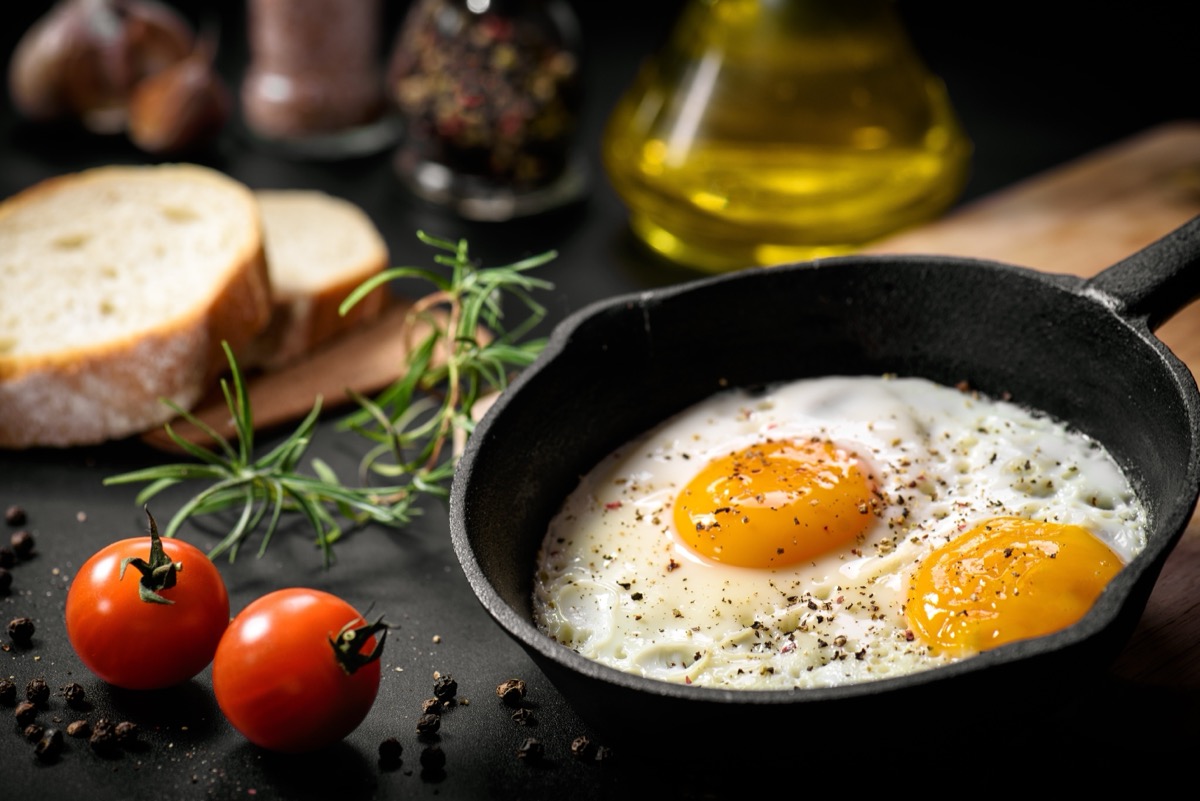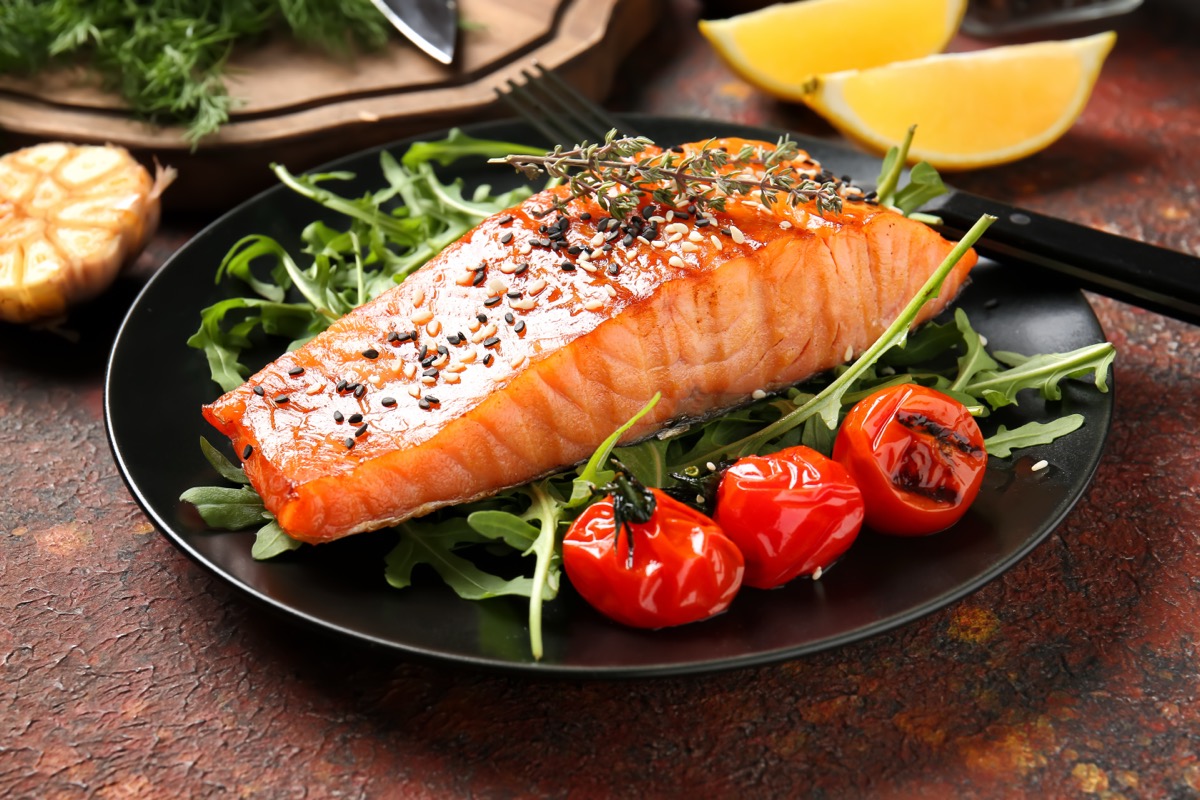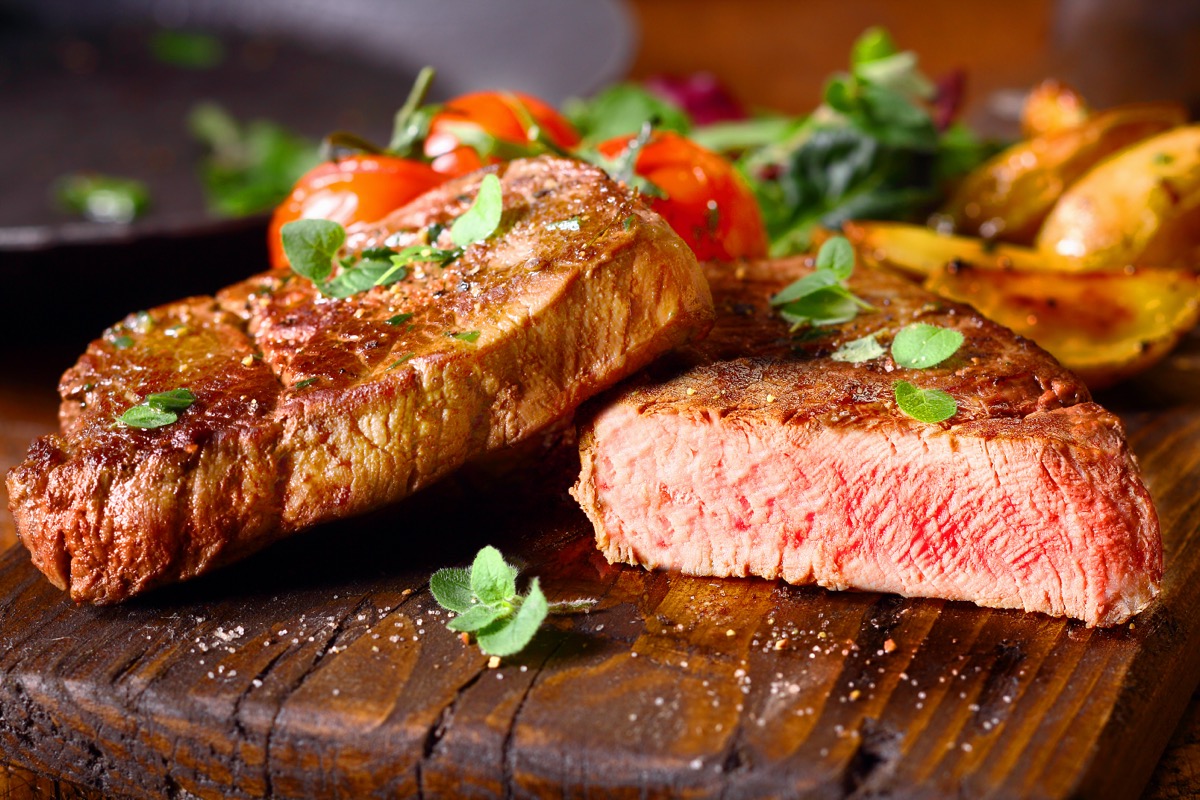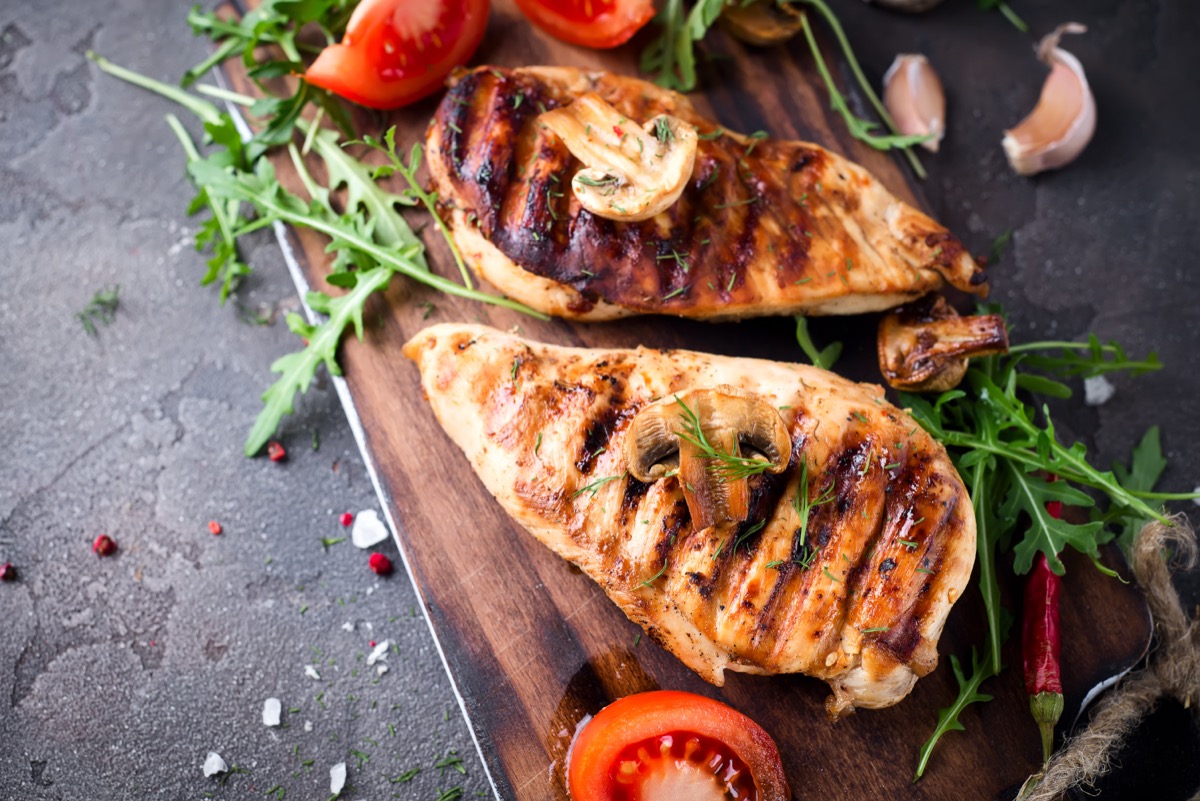Subscribe to our newsletter!
The #1 Proteins to Reduce Visceral Fat, Ranked by Effectiveness
Visceral fat—also known as belly fat or abdominal fat, or is not like "normal" fat on the body—by its very placement it's more dangerous than fat which accumulates on the rest of the body (such as the buttocks or thighs). Not only is a large waistline linked to a host of alarming health conditions such as heart disease and diabetes, recent research shows high levels of visceral fat is associated with brain proteins which are "hallmarks" of Alzheimer's disease. "People with excess visceral fat also had evidence of greater insulin resistance and lower HDL (good) cholesterol levels, both of which may be connected in some way to brain amyloid deposition. Because of the participants' average age [50], the scientists suggested that excess visceral fat may be a signal of greater Alzheimer's risk before symptoms appear," says Harvard Health.
"We can't precisely target where we lose every pound of weight, but it's important to reduce visceral fat," says psychologist and registered dietitian David Creel, PhD. "By losing 5% to 10% of your body weight, you can improve blood pressure, blood sugar, cholesterol levels, mobility, sexual function and more."
A healthy diet is one of the most important lifestyle factors that impact belly fat, especially one high in protein, which helps build muscle while burning fat. Here are five proteins to include in your belly fat-blasting diet.
Eggs

Eggs are expensive and hard to get right now thanks to the avian flu outbreak, but they really are effective in helping to blast belly fat. Each egg contains almost 7g of protein. A study published in Clinical Nutrition found that people who ate at least five whole eggs per week had "significantly" smaller waistlines, making eggs the ideal visceral fat-fighting food.
Tofu

100 g of tofu contains 17.3 g of protein, making it an excellent option for vegans and vegetarians. "It's a very nutritious food," Dr. Qi Sun, an associate professor of nutrition and epidemiology at Harvard T.H. Chan School of Public Health in Boston, tells the American heart Association.
Salmon

Not only is salmon packed full of essential nutrients and omega-3s, 100g of wild salmon contains about 25 g of protein. "In the wild, salmon eat smaller fish that are high in EPA and DHA — the beneficial, long-chain omega-3 fatty acids," says Dr. Bruce Bistrian, professor of medicine at Harvard Medical School.
Beef

Good quality beef is packed with nutrients such as iron, zinc, selenium, potassium, and vitamin B, and is an excellent whole-foods source of protein. 100 g of beef contains approximately 28.7 g of protein, making it a protein powerhouse.
Lean Chicken Breast

Both turkey and chicken are fantastic sources of protein, with 100 g of lean chicken breast containing 32.1 g of protein and 100g of lean ground turkey containing 28 g of protein. "Both chicken and turkey are truly excellent choices for health conscious consumers and both deserve a spot on your plate," says Frances Largeman-Roth, RDN, via TODAY.
Additionally, it is rich in choline, a nutrient essential for brain health and memory.
Ferozan Mast
Ferozan Mast is a science, health, and wellness writer dedicated to presenting science and research-based information in an understandable way for all readers. Read more about Ferozan
She couldn't believe that she had won the competition.
Her victory in the competition was beyond belief.

